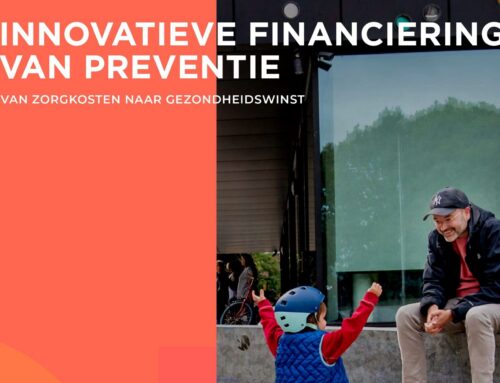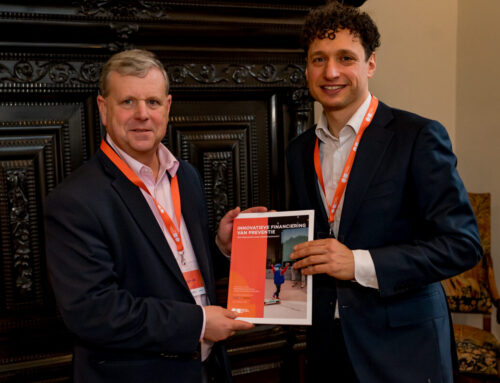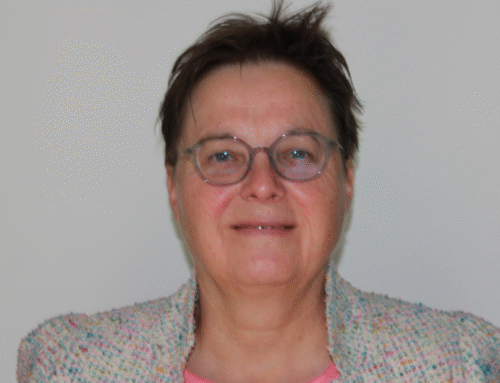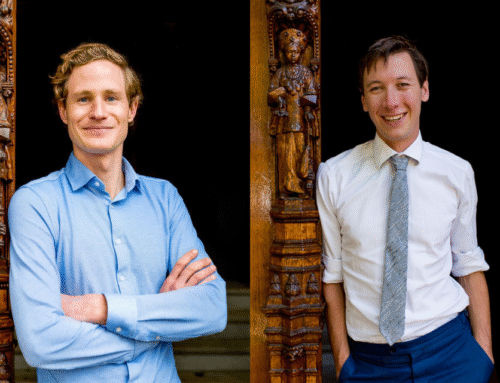That is exactly what Michael Grossman achieved by setting up multiple outcomes-based payment systems. Within his function as Managing Director Impact Investments at Social Finance US (SFUS), Michael was involved in several Social Impact Bonds and more recently in Career Impact Bonds. These bonds serve as a student-friendly financing model that eases access to quality career training to people who face barriers to education and employment. Such as low income, criminal justice involvement or an immigration status. How did Social Finance US came up with the idea of a Career Impact Bond? What are the lessons learned and can such outcomes-based payment systems be scaled up outside the US, for example in the Netherlands?
Michael explains how SFUS was looking for opportunities to create sustainable career pathways based on outcomes. In doing so, it’s important to pinpoint what outcomes are measurable and easy to finance. One of the things the team came up with was income. And when you look at what drives income, the answer is skills acquisition. So within the Career Impact Bonds, SFUS sets up investment possibilities in training programmes for students who face barriers to education and employment to develop their skills. On top of that, students are provided with support services to make sure they are fitted for the workforce and engage with the corporate sector to create a network. Michael is convinced that this whole package will help them to pursue their career pathway.
The alignment of interests in outcomes-based finance
While implementing the first Career Impact Bonds, SFUS learned that it is important to align all of the partners interests to the same outcome. In this case, the performance of the student. Michael explains how this works. First, if the students get a job above a minimum income threshold, they pay back the investments. If they do not cross the threshold, they do not have to pay anything. Second, if the income of students raised above the threshold, the trainers are rewarded with higher payments as well and later again based on longer term outcomes. Third, investors will then also get their money back with, possibly, a small interest rate. The last important element is to bring corporates and employers into the conversation to align the training programmes to the skills demanded by the business sector. In doing so, Michael emphasises that the goal is to finance training providers who can help learners achieve a significant and sustained income increase.
Google Career Certificates Fund: a win-win
One of the channels that SFUS has identified to achieve this significant and sustained income increase, is through the Google Career Certificates Fund (GCCF). This is basically a certification that you have been trained on the tools of Google by Google. Thanks to their extensive experience with Career Impact Bonds, SFUS designed and manages the GCCF. According to Michael this is not only an opportunity for SFUS to scale up their Career Impact Bonds, but also for Google to gain a much higher skilled workforce.
Disseminating outcomes-based payment systems
Of course we asked Michael if Career Impact Bonds have the potential to implement across industries and different kinds of learning environments to finance people’s access to higher income. He hopes and believes that the model is replicable and sustainable more broadly than just their current cases in the US. Maybe even in the Netherlands. Because, conceptually, the idea of an income share agreement, or an outcomes based loan makes a lot of sense. Students only finance the part of their education that they are able to use. Sounds promising to us!
Bring it on!
Michael concludes that every market has different barriers to employment. For example, the student debts in the Netherlands are not as severe as in the US. But there is a big gap between the demands of the labour market and the people being trained. And there are groups in the Netherlands that have much less access to the labour market. In addition, the transition towards green energy and digital skills, many jobs are likely to be replaced in the next decades. At the same time, that is probably the group that would need the most attention and could benefit from a program like this.. Let’s see what the future holds, but it looks like we can learn a lot from our colleagues at SFUS!
Luister hier de bijbehorende podcastaflevering.






